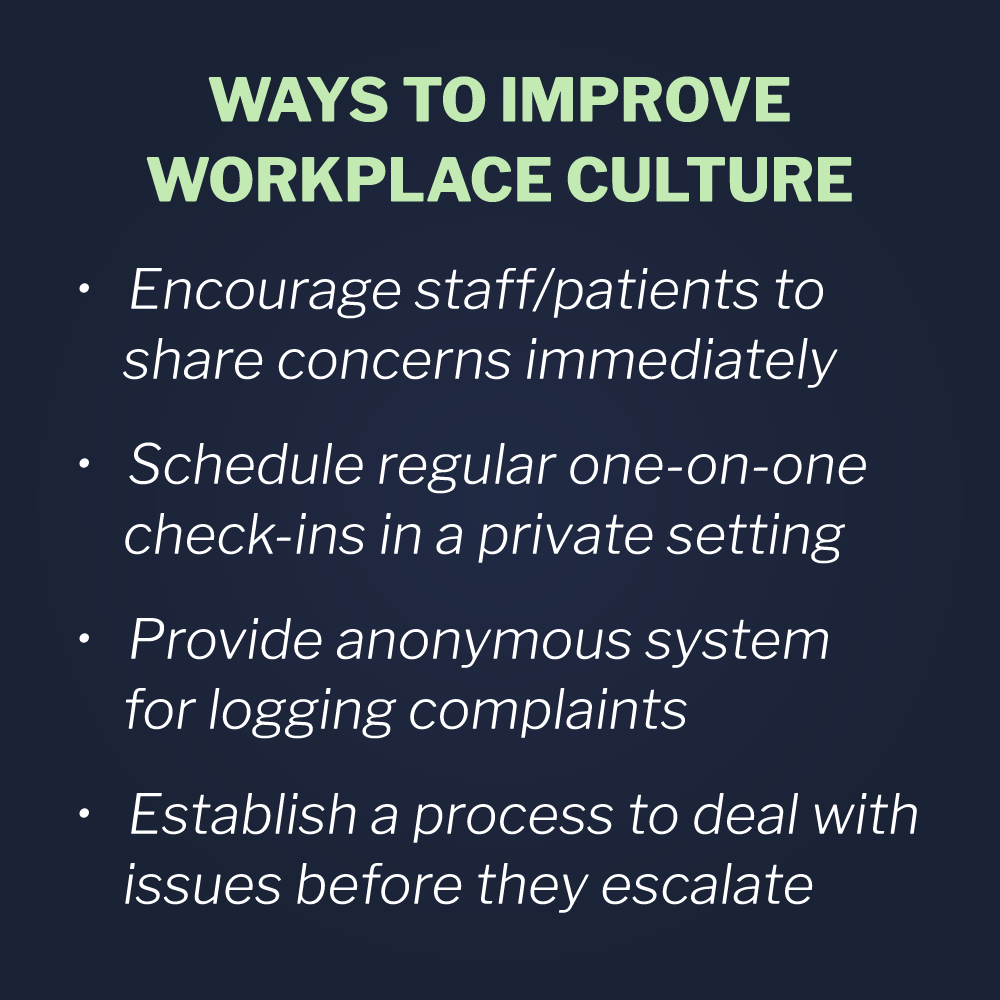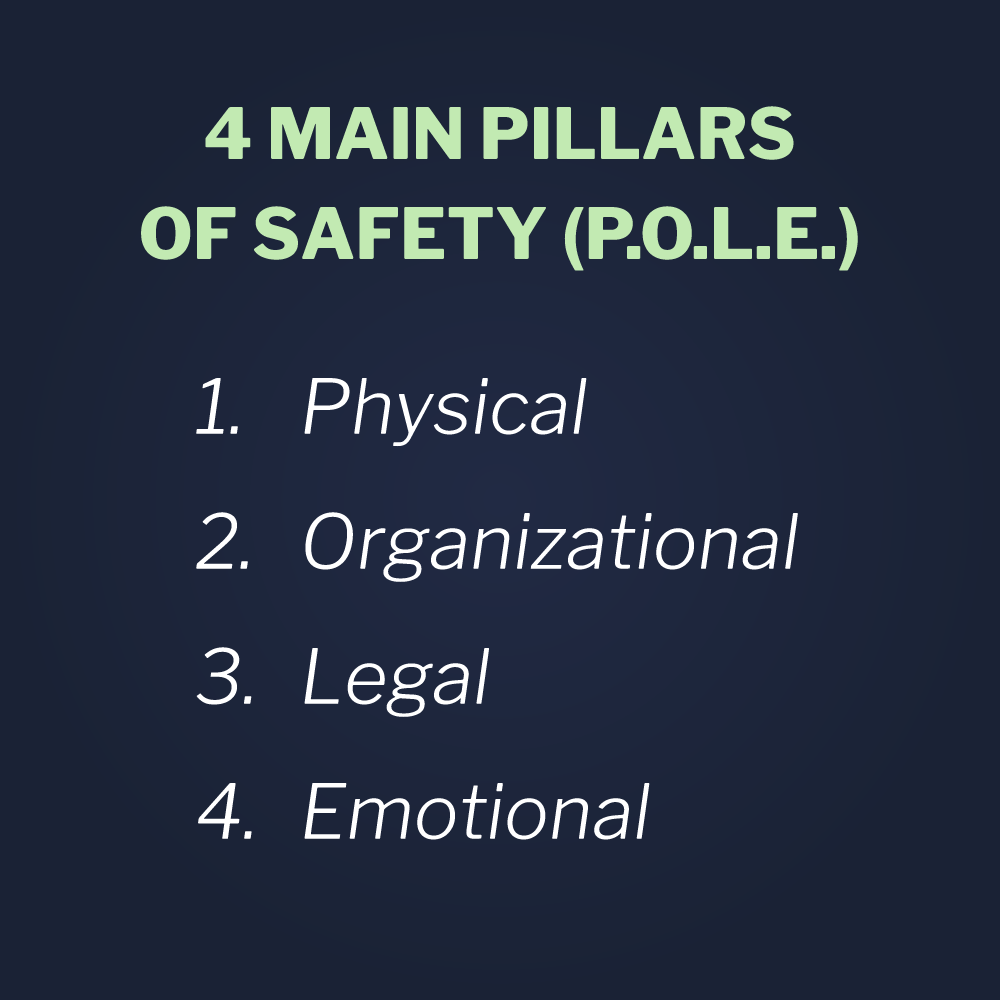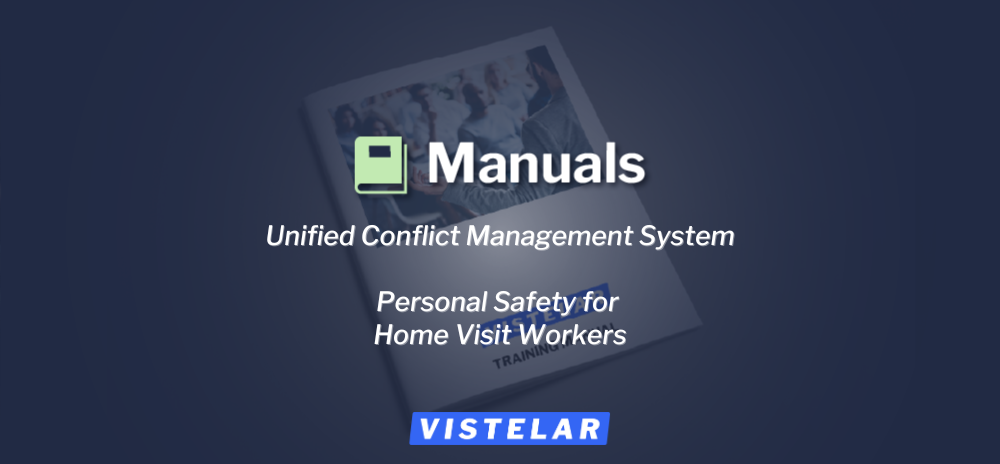When you hear the term "Workplace Violence," your mind probably shifts to thoughts of a physical altercation. However, you may be surprised to learn that workplace violence incorporates much more than fistfights and physical abuse. It also includes the mere threat of violence as well as verbal and psychological abuse. Any one of these actions can have detrimental long-term effects on a person's mental health and their ability to do their jobs.
Workplace violence is especially prevalent in healthcare. In America, an alarming 70% of workplace violence takes place in a healthcare-type setting. This is an industry fraught with stress and challenging situations. This includes both interactions between staff members as well as their relationship with patients. If left unchecked, a hospital, doctor's office, or clinic can become a breeding ground for serious workplace violence-related issues.
Workplace Violence In Healthcare
With this in mind, it’s also crucial to understand how working in a healthcare environment differs significantly from your typical office. These are individuals who are constantly dealing with shifting circumstances and emergencies. Furthermore, most staff are working shifts anywhere from 25-50% longer than the routine office worker.
A report released by OSHA states that healthcare workers are four times more likely to need time off due to a workplace incident than in other industries. The report also goes on to highlight the financial impact of this problem as well. For example, in one hospital system, violent workplace industries cost them upwards of $94,000.
How To Keep Your Employees Safe
 Eradicating workplace violence will require trainings led by experts. However, there are several steps you can take immediately to get this issue under control. Following these steps will show your staff and patients you are serious about improving your workplace culture.
Eradicating workplace violence will require trainings led by experts. However, there are several steps you can take immediately to get this issue under control. Following these steps will show your staff and patients you are serious about improving your workplace culture.
- Encourage staff and patients to share their concerns immediately
- Schedule regular one-on-one check-ins in a private setting
- Provide an anonymous system for logging complaints
- Establish a process for dealing with issues before they escalate
How Workplace Violence Comes Out of Nowhere
You may believe you are safe from workplace violence because none of your co-workers have shown violent tendencies in the past. However, that does not mean a future issue is not already starting to build within them internally. For many workers, violence starts as simply getting annoyed or aggravated about something. When they do not have the proper training to deal with this, it builds and escalates. Then, when the worker can no longer take it, they lose control.
As a healthcare professional, several of the triggers that cause workplace violence are inevitable. This includes long shifts, busy schedules, inter-department disagreements, and administrative directives. The problem is these individuals are not trained on how to handle these issues. They are unaware of their triggers and do not understand how to communicate their frustrations properly.
Another reason healthcare workers may become violent is due to the environment they are operating within. Many staff are afraid to speak out of fear of losing their jobs. Patients are often scared to report abuse due to the possibility of retaliation. Even administrators and executives may become hesitant to report workplace violence-related problems to avoid harming the business's reputation.
The Need For Workplace Violence Training
Now, it’s possible your institution already has some type of training in place. However, most of these programs are outdated and do not deal with healthcare-specific issues that often arise. Furthermore, these programs were not designed to address the specific needs of your staff and patients. This is where Vistelar’s customizable Conflict Management Training solutions come into play.
are outdated and do not deal with healthcare-specific issues that often arise. Furthermore, these programs were not designed to address the specific needs of your staff and patients. This is where Vistelar’s customizable Conflict Management Training solutions come into play.
Visterlar’s operates within four main pillars of safety represented by the acronym P.O.L.E (Physical, Organization, Legal, Emotional). Their training is delivered through various channels, including books, speaking engagements, in-person workshops, and a content licensing program which includes both live and online education.
What makes Vistelar different from the rest is its commitment to customizing all of its course offerings to meet your specific needs.
Vistelar Course Offerings
- Non-Escalation/De-Escalation — verbal and proxemics skills, improving customer service
- Personal Protection — crisis management, bystander mobilization, escapes & escorts
- Workplace Violence — WPV prevention, active shooter, lone-worker safety
- Physical Alternatives — defensive tactics (control, protect, stop-the-threat, stabilization), weapons use & control
- Positive Interventions — focused on intervening in situations a person is refusing to cooperate with direction, displaying unsafe behaviors, hurting or threatening to hurt themselves or others, denying medical or other intervention
- Specialized Public Safety — crowd management, corrections response and inmate stabilization, water safety and defensive tactics, munitions and distraction devices
- Instructor Development — Advanced Trainer Skills For Contact Professional Instructors
These training sessions are designed to help stop workplace violence before it starts. It allows both your staff and patients to feel comfortable and confident daily. Your current team will feel grateful that you have decided to invest in their safety and well-being. Furthermore, you will begin to attract top talent in your area once they find your commitment to ending workplace violence.
Next Steps To Combat Workplace Violence
Workplace violence is a serious and growing issue throughout the healthcare industry. If not addressed, it may lead to serious financial peril, high employee turnover, and the inability to operate your facility.
Vistelar’s personalized training programs can make sure this doesn’t happen to you. So take your first steps towards ending workplace violence by booking your free discovery call. Our team will work to understand your current situation and present the best solutions to fit your needs.








